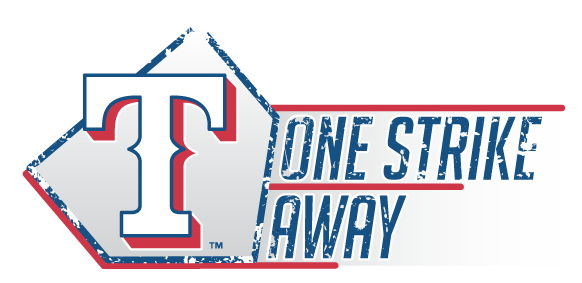Why it's hard to get excited about Torii Hunter
/Per everyone, everywhere, the Rangers are "pushing" to sign free agent DH/OF Torii Hunter, a rumor that shouldn't come as a huge surprise. Faced with limited resources this winter, Texas are faced with something of a budget crises, and players like Hunter are within their price range in an extremely thin market for hitting.
A couple weeks ago I broached the idea of Torii coming to the Rangers -- something I've been submitted to but haven't developed any enthusiasm over -- though, even given its likelihood, I'm not resigned to hating the deal just yet. I'll stand by what I said on November 16th:
[For] 2015, which is the only year that really matters in this context, it's probably going to take around $8 million to ascertain his services. If, as I imagine, his focus is to win a World Series, the Rangers can sell him on that idea, but I doubt Jon Daniels is cunning enough sign him for closer to $5-$6 million, which is what I think he's truly worth at this stage of his career.
If we use that as the vague benchmark, what I'm really saying is this: If Texas could sign Torii Hunter for $6 million, I like the deal; if it's $8 million, I'm ambivalent; if it's $10 million, I don't like it.
The thing is, Torii is only a shell of what he used to be. In his last two years with Detroit he generated a composite triple slash line of .295/.327/.456 (115 wRC+) with next to no value running the bases and an absurdly bad -35.2 runs in the outfield. His bat is in decline, and that's the only skill he has left that the Rangers would be paying for, which is why signing him only makes sense if he was to be the primary designated hitter, with maybe 40 starts in right field.
For what it's worth, Dan Szymborski ran his ZiPS projection for Torii Hunter in Texas, and it came out .273/.303/.427 (96 OPS+), worth 0.0 zWAR as an outfielder, +0.2 zWAR as a DH. Essentially, ZiPS sees Hunter the same way he's being described in each of the last two articles I've written of him: a replacement-level player with a league-average bat.
But maybe production isn't the entirety of why the Rangers want him in Texas. Last night Evan Grant wrote about how "the fit is undeniable" with Hunter, noting that "there is significant value in what Hunter brings to the fabric of the team. New manager Jeff Banister is trying to bring a culture of toughness and inclusiveness to the clubhouse. He wants to bring the leadership council concept that he and Clint Hurdle built in Pittsburgh to help players take more ownership and accountability."
It sounds a lot like having Michael Young 2.0 back in the clubhouse. If that's worth $8 million, so be it if that's their line of thinking.
Part of what depresses me, personally, about having Torii Hunter in Texas has less to do with his (lack of) on-field production, but more so that the trajectory of the offseason will be set in stone if he gets signed. T.R. Sullivan writes that the Rangers are close to agreeing to terms on a contract with Colby Lewis and, assuming the same happens with Hunter over the next couple of days, Texas will have likely committed between $12-$14 million -- 60%-70% of the expected budget this winter -- for two post-prime players who don't figure to add a ton in the win department next year.
As it stands the Mariners and Angels, and maybe Oakland, too, have more complete rosters than do the Rangers. The West has the potential of being the strongest division in baseball again in 2015, and, with how it looks now, Texas will have to part with some of its gifted prospects on the farm to make up the necessary wins.
